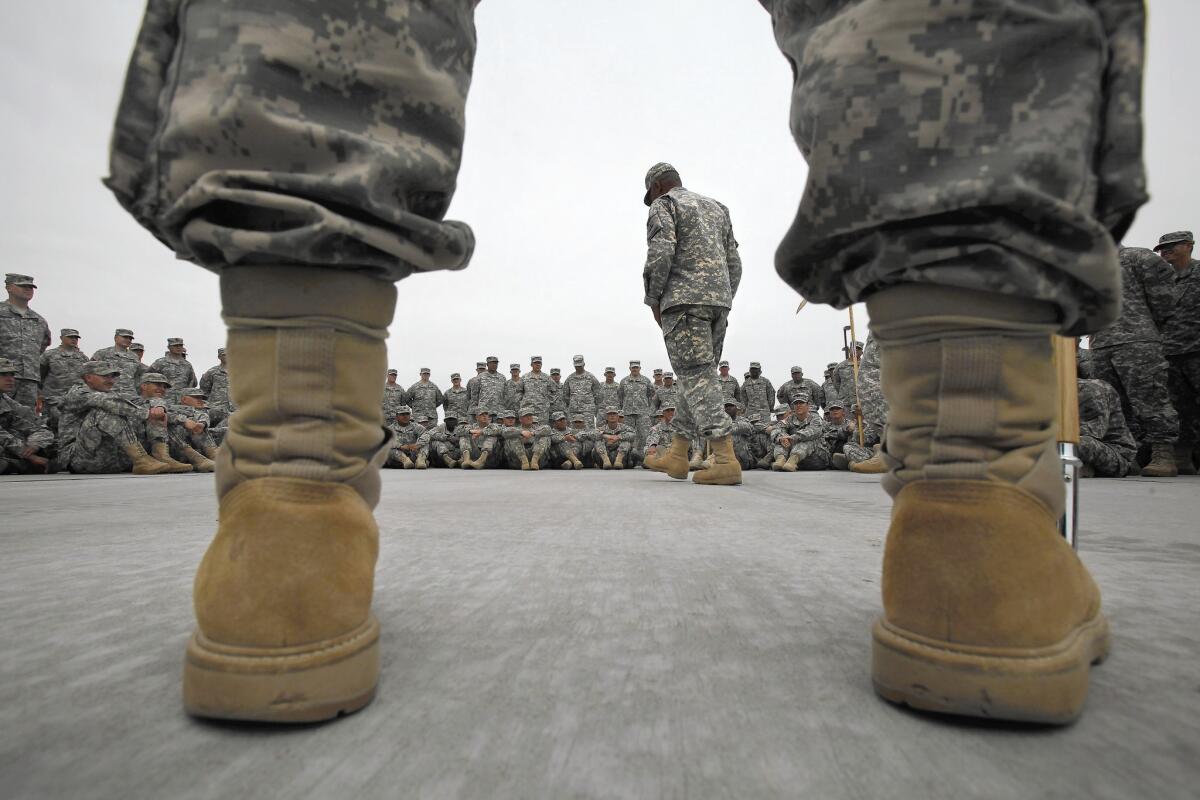UCI Study: Veterans find it easier to accept comrades’ deaths in war than by suicide

- Share via
Veterans surveyed for a recently-published UC Irvine study said it’s easier for them to accept comrades lost in combat than those who died by suicide.
“Combat death is expected and that eases the acceptance,” lead researcher Pauline Lubens said. “Suicide death is unexpected and that can make the acceptance of loss harder.”
“U.S. combat veterans’ responses to suicide and combat deaths: A mixed-methods study” pioneers a new area of research on the grief felt by post-9/11 service members and veterans.
A former photojournalist turned public health policy analyst, Lubens pursued the study for her doctoral dissertation at UCI’s Program in Public Health.
She was mentored by Roxane Cohen Silver, a professor of psychological science, medicine, and public health who has studied grief in the wake of natural disasters and terrorist attacks for 40 years.
“We seek to open the eyes of people who have under-appreciated the role of grief,” Silver said. “We are trying to expand the body of knowledge about the toll of war.”
When Lubens worked for the San Jose Mercury News, she covered the impacts of the 2003 invasion of Iraq on civilians and returned in 2004. She also photographed wounded service members, military families, and refugees resettling in the Bay Area.
“I witnessed first-hand the effects of war on people,” Lubens said.
More than 5,400 U.S. military personnel have died in combat since the wars in Afghanistan and Iraq began in 2001 and 2003, according to the most recent casualty report from the Department of Defense. In a 2017 Iraq and Afghanistan Veterans of America survey, 58% of participants said they knew a veteran who had died by suicide, and 65% knew a veteran who had attempted to take his or her own life.
Lubens interviewed 28 veterans from across the country about their experiences of loss, many sharing these traumatic stories for the first time.
She also analyzed the results of an anonymous survey of approximately 200 veterans from 35 states.
“I think the people I interviewed were at a point where they were able to describe this topic,” she said. “One of the ingredients of military culture is to be strong and not ask for help. It’s the sort of culture that makes someone successful in combat and the military.”
Lubens said that there are mental health resources available to service members and veterans, but they aren’t always being sought out or utilized.
Post-traumatic stress disorder and other psychological injuries are not confined to service members who served in combat, Lubens said. Veterans who deployed on humanitarian, peacekeeping or search and rescue missions may have been exposed to trauma as well.
“You don’t have to have served in combat yourself to have lost a comrade in combat,” she said. “And certainly you can be a non-combat [veteran] and lose a military friend to suicide.”
Lubens has considered expanding her study to include all post-9/11 veterans, not just those who saw combat. She notes that there is a higher suicide rate among veterans who didn’t see combat, compared to those who did.
She hopes the study inspires other researchers to deepen the public discourse onveteran grief and the invisible wounds of war.
“In many ways, they’re the most disabling and the longest-term,” Lubens said.
If you or someone you know is having thoughts of suicide, you can call the National Suicide Prevention Lifeline at (800) 273-8255. A caller is connected to a certified crisis center near where the call is placed. The call is free and confidential.
All the latest on Orange County from Orange County.
Get our free TimesOC newsletter.
You may occasionally receive promotional content from the Daily Pilot.






